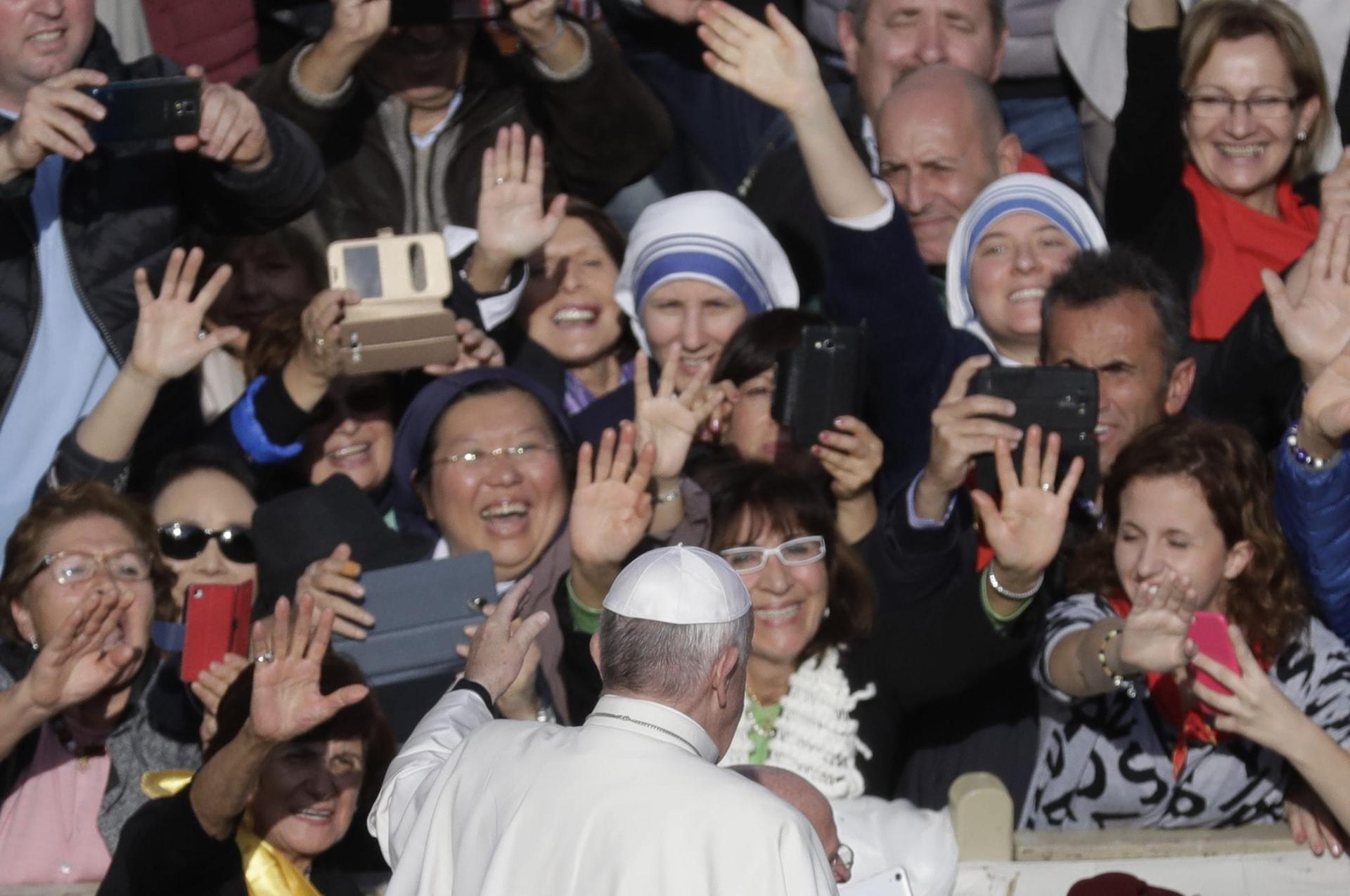As the Year of Mercy ended, Pope Francis signed an apostolic letter imploring us to continue being merciful called Misericordia et Misera. This letter continues key themes of Francis. The title refers to the mercy with misery Jesus grants the woman caught in adultery. I intend to provide the key lines here with minimal commentary where needed.
He gets to his thesis fast: “Mercy cannot become a mere parenthesis in the life of the Church; it constitutes her very existence, through which the profound truths of the Gospel are made manifest and tangible. Everything is revealed in mercy; everything is resolved in the merciful love of the Father.” (1 – numbers in brackets refer to paragraphs in the document).
“Forgiveness is the most visible sign of the Father’s love, which Jesus sought to reveal by his entire life. Every page of the Gospel is marked by this imperative of a love that loves to the point of forgiveness.” (2)
From this Francis draws the fact that “None of us has the right to make forgiveness conditional.” For this to be understood well, 2 distinctions are helpful: first, God puts some limits on forgiveness which we must respect as absolution is not given if someone firmly intends to commit the sin they’re confessing; second, forgiving does not imply giving free reign as an abused woman might forgive her ex-husband yet file a restraining order against him.
“Mercy gives rise to joy, because our hearts are opened to the hope of a new life.” To a technological and sad culture, the Pope offers an antidote: “All who put aside sadness and put on joy will live in God.” (3)
Pope Francis suggests “pastoral conversion” which is “shaped daily by the renewing force of mercy” (5) as part of the new evangelization. The footnote explains that “pastoral conversion” is a conversion of the Church’s ministry to more openness and outreach.
Pope Francis says, “We are called to celebrate mercy,” and follows with four ways to do this.
First, “From the beginning to the end of the Eucharistic celebration, mercy constantly appears in the dialogue between the assembly at prayer and the heart of the Father.” (5)
Second, “Hearing the word of God” celebrates mercy because, “In the biblical readings, we retrace the history of our salvation through the proclamation of God’s tireless work of mercy.” (6)
Third, “The Bible is the great story of the marvels of God’s mercy.” (7) In this context he suggests a “Bible Sunday” every year without further details.
Fourth, “The celebration of mercy takes place in a very particular way in the Sacrament of Penance and Reconciliation.” Here, “God shows us the way to turn back to him and invites us to experience his closeness anew.” (8)
Francis lists the attributes a priest should have in hearing confessions: “I ask you to be welcoming to all, witnesses of fatherly love whatever the gravity of the sin involved, attentive in helping penitents to reflect on the evil they have done, clear in presenting moral principles, willing to walk patiently beside the faithful on their penitential journey, far-sighted in discerning individual cases and generous in dispensing God’s forgiveness.” (10) Wanting moral principles clearly presented and wanting people helped reflect on the evil they did reaffirms that mercy is applied within the structure of Christian morality.
“No law or precept can prevent God from once more embracing the son who returns to him, admitting that he has done wrong but intending to start his life anew.” (11)
Paragraph 12 extends two dispensations. First, all priests can forgive the sin of abortion. All sin separates us from God, but some sins are also crimes; and the removal of crimes is reserved to bishops or the Pope, and those they delegate, rather than being removable in every confession. The crime associated with abortion has been delegated to all priests in most US and Canadian dioceses for years, and now the pope makes this permanent and worldwide.
The second disposition is extended faculties for confession to the priests of the Society of St. Pius X “until further provisions are made.”
Pope Francis encourages the mercy of consolation where words of hope reach those in pain. We might suffer pain, “Yet God is never far from us at these moments of sadness and trouble.” (13)
Contemporary culture “Often tends to trivialize death” but Francis points out mercy in how “The Church has always experienced this dramatic passage in the light of Christ’s resurrection, which opened the way to the certainty of the life to come.” (15)
Mercy is interpersonal: “It is an encounter between two hearts: the heart of God who comes to meet us and a human heart. The latter is warmed and healed by the former.” (16)
He wants new ways of practicing “the corporal and spiritual works of mercy [which] continue in our own day to be proof of mercy’s immense positive influence as a social value.” (18)
“The social character of mercy demands that we not simply stand by and do nothing. It requires us to banish indifference and hypocrisy.” (19)
Francis calls for “a culture of mercy” – like John Paul II called for “a culture of life” – which is “based on the rediscovery of encounter with others, a culture in which no one looks at another with indifference or turns away from the suffering of our brothers and sisters. The works of mercy are ‘handcrafted’, in the sense that none of them is alike.” (20)
Francis concludes with a concrete suggestion that, “The entire Church might celebrate, on the Thirty-Third Sunday of Ordinary Time, the World Day of the Poor.” (21) This is the Sunday two weeks before Advent begins in mid-November.
As a conclusion to the Year of Mercy, Francis tells us, “The Jubilee now ends and the Holy Door is closed. But the door of mercy of our heart continues to remain wide open.” (16)














